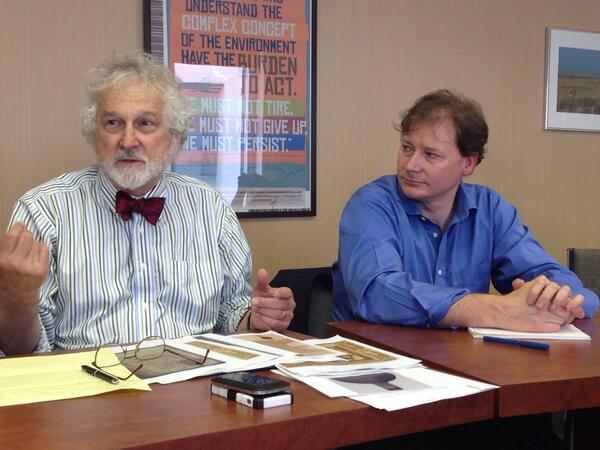By Lily Simon, Communications Intern
As we near the 800th birthday of the Magna Carta—and CIEL’s 25th—how does Magna Carta influence the realm of international environmental law today?
CIEL welcomed President Emeritus and Distinguished Scholar Dan Magraw as the second speaker in its 25th Anniversary Discussion Series Defending the Planet in the 21st Century. Currently a professorial lecturer and fellow at the Foreign Policy Institute and Johns Hopkins University’s School of Advanced International Studies, Dan chairs the American Bar Association Section of International Law’s Task Force on Magna Carta, and also serves as a consultant to the United Nations.

Whereas today most people think of Magna Carta only as a political document, it embodies much more: emerging ideas concerning ownership and access to resources, and declarations concerning equal protection. In his presentation, Dan highlighted the various iterations of the Magna Carta since 1215, explaining that it failed in its original purpose as a peace treaty between King John and the rebelling barons, and noted its continuing importance as the basis for the ideas of freedom and rule of law that are still in practice today.
Of particular interest to the assembled environmental crowd was the creation in 1217 of Carta de Foresta (Charter of the Forest) from Magna Carta and its separate publication. Carta de Foresta is one of the very first environmental laws, including stipulations that restricted land use and, it has been argued, created the first “national parks.” While forest preservation at that time was most likely driven by economics rather than any nascent environmental ethic, it is nonetheless fitting to honor the ideas of both Magna Carta and Carta de Foresta on the cusp of Magna Carta’s 800th anniversary.
Carta de Foresta was also revolutionary in affording equal protection under law for all Englishmen and embracing a principle of non-discrimination that had been previously absent in lawmaking. Dan noted that human rights and environmental standards are integral to our current understanding of rule of law – without them there is no rule of law.
Although details regarding the writing and sealing of Magna Carta are murky and its current image is a myth, the ideas included in the 1215 document are still present in and relevant to the laws that govern us today – including environmental laws.
To receive information on and invitations to future CIEL 25th anniversary events, email [email protected].
To join the conversation on Twitter follow @ciel_tweets and use #CIELat25.
Originally posted on June 23, 2014.
